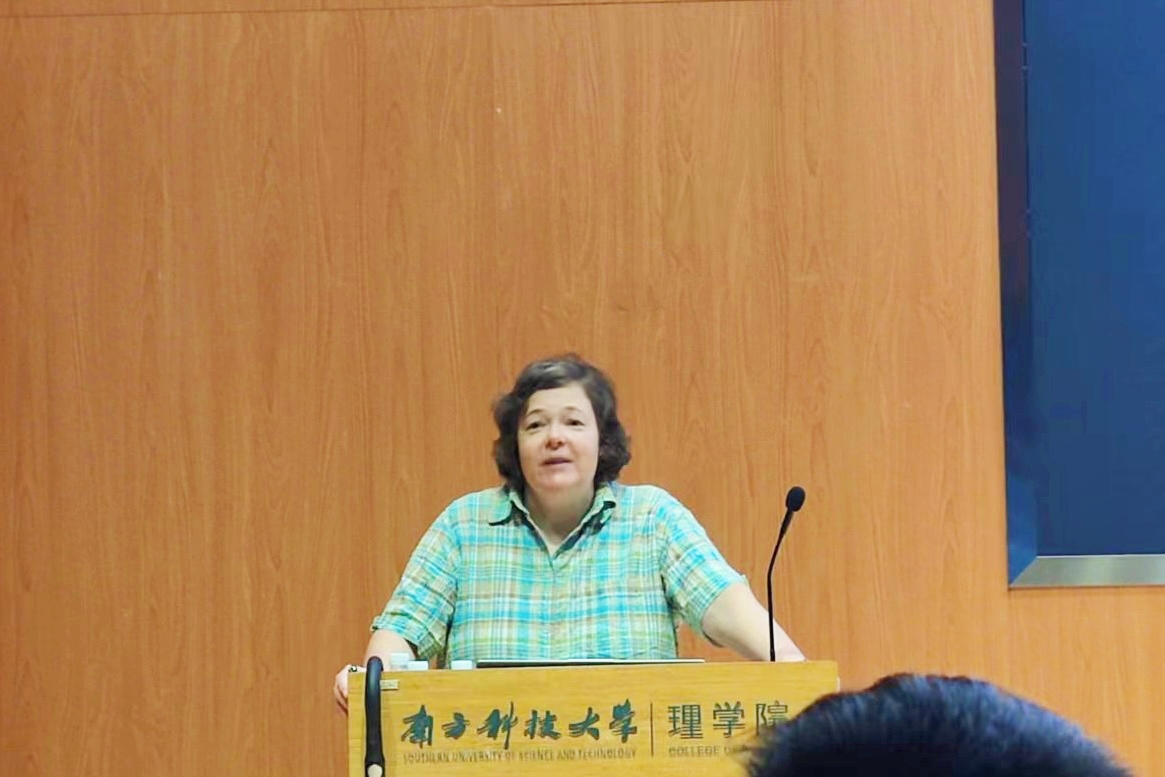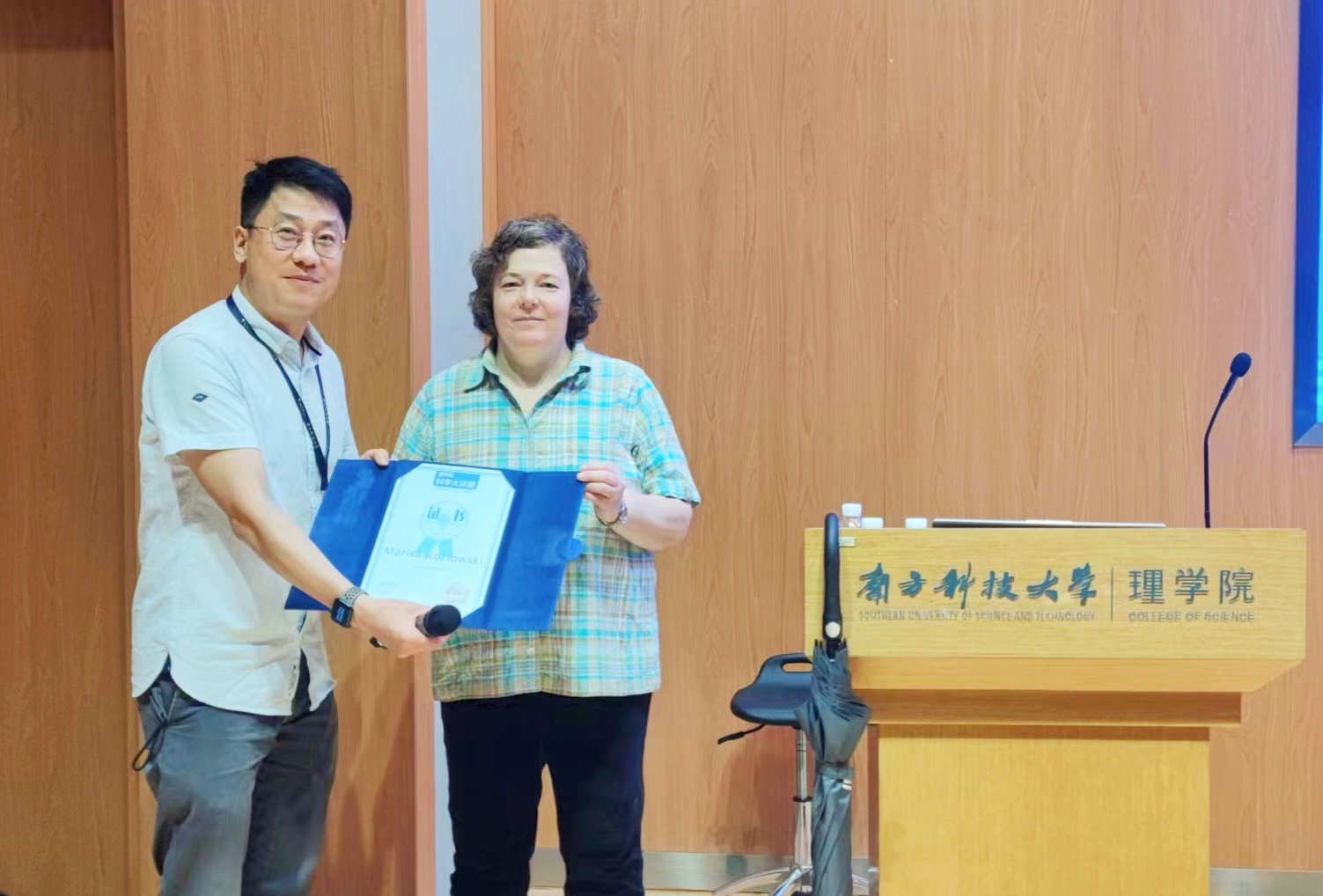Marisa Kozlowski shares her research at Science Lecture
Qingjin LIANG, Yiqing CHEN 2023-10-16
On October 9, 2023, Prof. Marisa Kozlowski from the University of Pennsylvania was invited to the 128th Science Lecture in the College of Science. She gave a lecture themed “Oxygen Driven Fragment Coupling for the Synthesis of Natural Products and Antibacterials”, which was chaired by Assistant Professor Tiezheng JIA of the Department of Chemistry, SUSTech.

In the lecture, Prof. Kozlowski briefly introduced the use of oxidative coupling to efficiently construct carbon-carbon, carbon-oxygen, and carbon-nitrogen bonds that widely exist in nature. However, few laboratory equivalents are as selective or as efficient as the biological versions. The use of parallel microscale screening to discover selective and efficient catalysts for such processes using oxygen as the terminal oxidant was discussed. The unexpected outcomes obtained highlight the value of interrogating large numbers of rationally selected variables under the umbrella of a general hypothesis. The development of selective oxidative catalytic processes for phenol coupling, enol coupling, and alkyl C–H activation was discussed. Applications in total synthesis of hypocrellin, honokiol, chaetoglobin, and pyrolaside B were presented. Finally, studies on the mechanisms of these transformations were described with the goal of understanding the governing principles and how they might be used to discover further new transformations.
In the Q&A interactive session, the on-site teachers and students actively asked questions about the mechanism of regioselective oxidative coupling of phenols, The future development direction of high-throughput experimental screening, etc. Prof. Kozlowski gave detailed answers one by one.
Q: For asymmetric hydroxycarbazole coupling part, have you tried to apply this strategy to the total synthesis of natural products?
A: Yeah, it's a little more difficult. We will continue to explore in future work.
Q: For hydrogen peroxide, can it realize scalable production?
A: Our group don't have industrial power yet. We receive few inquiries from companies regarding this aspect, but I think it has the potential for industrialization.
Q: For oxidative homo- and cross-coupling of phenols, compared to phenol, is naphthol more difficult to oxidize?
A: No, the answer is the opposite. Due to the difference in oxidation potentials (naphthol = 1.87 eV, phenol = 2.10 eV), the oxidation of phenols is more difficult.
In conclusion, Assistant Professor Tiezheng JIA handed an honorary certificate to Prof. Marisa Kozlowski.





